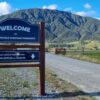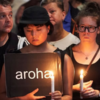
Bicentenary Statement / Discussion Paper FAQs
A special statement has been written to mark the bicentenary (200 year anniversary) of the first recorded preaching of the Good News (Gospel) of Jesus Christ in Aotearoa New Zealand.
FAQs
Q. Why has this Statement been written?
2014 is a very special year. The arrival of the Gospel was an extremely important event for everyone in this country, whether they are Christian or not.
The bicentenary, like any anniversary, provides an opportunity to remember important events and their significance for the present day and the future. The Bicentenary Statement records and marks the arrival of the Gospel, summarises some key points in our history, and offers an opportunity to re-affirm and re-commit to the work of the Gospel in the future.
Q. What do we hope to achieve by or with the Statement?
Several things:
- Mark this historic occasion – a 200 year anniversary
- Record the event itself and an accurate and fair summary of the key historic events since, thereby equipping the Church with information which is unknown to many, including many in our churches. As followers of Jesus who called himself ‘the Truth’, we should know the truth of our history, including not only the sacrificial service of those who spread the Gospel and stood up for justice, but also the times when the church fell far short of her calling
- Engage people throughout the discussion phase, and provide an opportunity for people to have input into the Statement wording
- Offer people who identify with the statement a chance to mark the event personally by signing the Statement – individually, as a group, or more formally on behalf of any group or church they represent
- By offering ministers, pastors, and individual Christians the chance to sign the Statement it is hoped that there will be a wider ownership of the document and the commitments it contains
- Open up ongoing discussions with groups inside and outside the church. This may be particularly relevant with Maori who have become disconnected from church or where there are unreconciled issues
- Offer hope and direction in the area of bi-cultural relationships for the future
Q. Who is behind this Statement?
The original idea came from Alistair Reese (Te Kohinga Reconciliation Network, historian-theologian) who mentioned the possibility and value of such a statement in a paper he presented at a forum at Laidlaw College in June 2013.
The idea was discussed further a few weeks later at a meeting organised by Glyn Carpenter (NZ Christian Network) with Alistair and David Moko (Baptist Maori Ministries) present.
The National Church Leaders Aotearoa New Zealand group (also known as the ‘Heads of Churches’ group) was informed of the idea at their meeting in September 2013 and were generally supportive. At that stage the thinking was that the NCLANZ group might organise the writing themselves, but in December, after discussion with the group chairman about the short time before the February 2014 NZCN Christian Leaders Congress being held in Waitangi, Glyn Carpenter organised a writing group to prepare a draft statement.
The main writer was Samuel Carpenter (Trustee, Karuwhā Trust, and no relation to Glyn Carpenter). Samuel is a qualified lawyer who also holds a masters degree in history, and currently works for the Office of Treaty Settlements. He has been taking education groups to Waitangi for 15 years and made a submission to the Waitangi Tribunal on behalf of the Nga Puhi treaty claim.
Samuel worked closely with the members of the writing group – David Moko, Glyn Carpenter, and especially Alistair Reese. Drafts of the document were circulated to a number of theologians, historians, and Maori leaders for their input, including Bishop Kito, Pane Kawhia, Dr Rangi Nicholson, Dr Rod Thompson, Dr Allan Davidson, and Dr Stuart Lange.
The writing group greatly appreciates the input of all these people. The final statement though stands on its own and any errors or deficiencies in the Statement are the responsibility of the writing group alone.
Q.What is the process for progressing the Statement?
The status of the Statement up to 31 July 2014 is a “Discussion Paper”.
- English and Te Reo Maori versions of the Statement were presented at the February 2014 NZCN Christian Leaders Congress. Many leaders present would have signed the Statement at that time, but as a result of some ideas for improvement suggested at the Congress, it was decided to leave the Statement open for further comment (comments can be lodged on the NZ Christian Network website until 31 July 2014)
- The Statement was presented to the NCLANZ meeting in March 2014 and leaders present were asked to distribute to key leaders in their churches and to encourage them to discuss the Statement and comment on the website
- David Moko and Glyn Carpenter have taken the Statement to marae, hui, and ministers groups around the country. Road trips in May/June saw the statement presented and discussed widely throughout North and South Islands. (Check out NZ Christian Network Facebook pages for pictures of some of the towns/cities visited and leaders receiving the Statement)
- In August, after all of the comments have been received, the writing group will re-convene to prayerfully consider all of the feedback, and make final changes to the Statement
- The Statement will be re-presented to the NCLANZ group in September
- The Statement will be re-distributed to all NZ Christian Network leaders including Regional Advocates, Advisory Group, Board of Reference, and Specialist Network leaders
- The Statement will also be re-distributed to Ministers Network leaders around the country, and via websites, newsletters, and social media sites
EVERYONE who supports and identifies with the Statement will be invited, and is welcome to sign the Statement. We ask only that those who sign, take seriously the Affirmations and Acknowledgements contained in the Statement.
We especially invite national, regional, local, and organisation/group leaders to sign the Statement.
Q. Will names of those who sign the Statement be recorded?
Yes. From September onwards, there will be an opportunity not only to print and sign a personal copy, or a copy to be signed by your group (e.g. National Church Leadership team or local Ministers Network), but there will be a facility to log all names on a special web-page. All names logged on the web-page will be able to be viewed.
PICTURES! – in this visual age, it is hoped that any groups that sign the Statement will take a picture to mark the occasion. The picture could be posted on your own web and social media sites. We’d also love to re-post them on NZ Christian Network’s sites.
Click on Gospel Bicentenary – Discussion Paper to download or comment on the statement:






